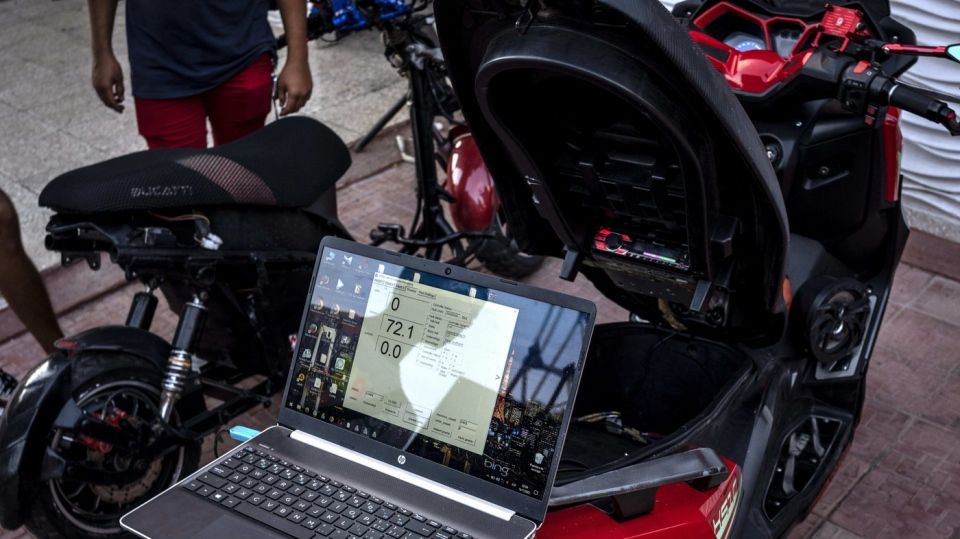The young people ride their electric motorbikes to this highway outside of Cuba’s capital city, where they do stunts and chat about their two-wheelers. If it weren’t for the music booming from speakers, the area would be virtually quiet.
Electric scooters are known as “motorinas” on the island of Cuba. Over the past few years, Cuba has been overrun with “motorinas,” which is the island’s colloquial name for the vehicles. The Cuban government has been pushing “motorinas” as an effective alternative to gasoline and diesel, as well as a solution to the country’s transportation issues.
Since the government began allowing their importation about a decade ago, approximately 300,000 of them have been registered for use on the island, according to Colonel Mario Roa Labrada, who is in charge of the vehicle registry at the National Transit Directorate. Cubans are prohibited from importing motorcycles that are powered by gasoline or diesel. In contrast, there are maybe half a million automobiles on the road.
The prices for the bikes range anywhere from $2,000 to $5,000. The majority of these goods come from China and are brought into Cuba through Panama. Officials in Cuba have reported that an electric motorbike named the “Minerva” is now being manufactured in a facility in Villa Clara that was once used for the production of bicycles.
Ernesto José Salazar, who is 20 years old and works in a paint business, said that there is a “outbreak” of electric bikes and that people like riding them.
Young motorcyclists often band together via social networks and spend hours debating topics such as the advantages of a battery, where to get tyres, and how to locate the finest workshop.
“Fuel is a lost cause, you have to hunt for it and line up,” said Alejandro Vasallo, 23, who was riding an electric motorbike at the time.
There is a lack of gasoline in Cuba, particularly diesel, which is also required to operate the energy generators that supply the nation’s power system. The power grid failed earlier this summer. Cuban drivers are facing shortages of fuel. Oil shortages have been created by issues in Venezuela, which is an ally of the island as well as a source of oil, as well as by sanctions imposed by the United States.
Drivers of electric scooters often recharge their batteries using standard power plugs, which means they are powerless if the supply is interrupted.
The Cuban government encourages the use of electric motorbikes because they are more energy efficient and provide an alternative to the country’s public transportation system, which is plagued by a scarcity of fuel and components to repair broken down buses.
“Electricity will always be cheaper than diesel fuel and gasoline,” said Ramsés Montes Calzadilla, strategy director for the Ministry of Energy and Mines, in an interview with the news website Cubadebate. “In addition, electric motors are much more efficient than combustion engines, and you can save up to 70 percent of the cost of fuel,” he added. “Electric motors are much more efficient than combustion engines.”
Electric motorbikes are altering the urban scene in Cuba, but they are also producing problems. The batteries have a propensity to catch fire, and the relative quiet of the vehicles, combined with inexperienced drivers, is leading to an increase in vehicle collisions.
The most recent data that is available from the Fire Department indicates that there were 263 fires caused by motorbikes with gel or lithium batteries in the first half of the year 2020. This is a significant increase when compared to the total number of 208 fires that occurred in 2019.
